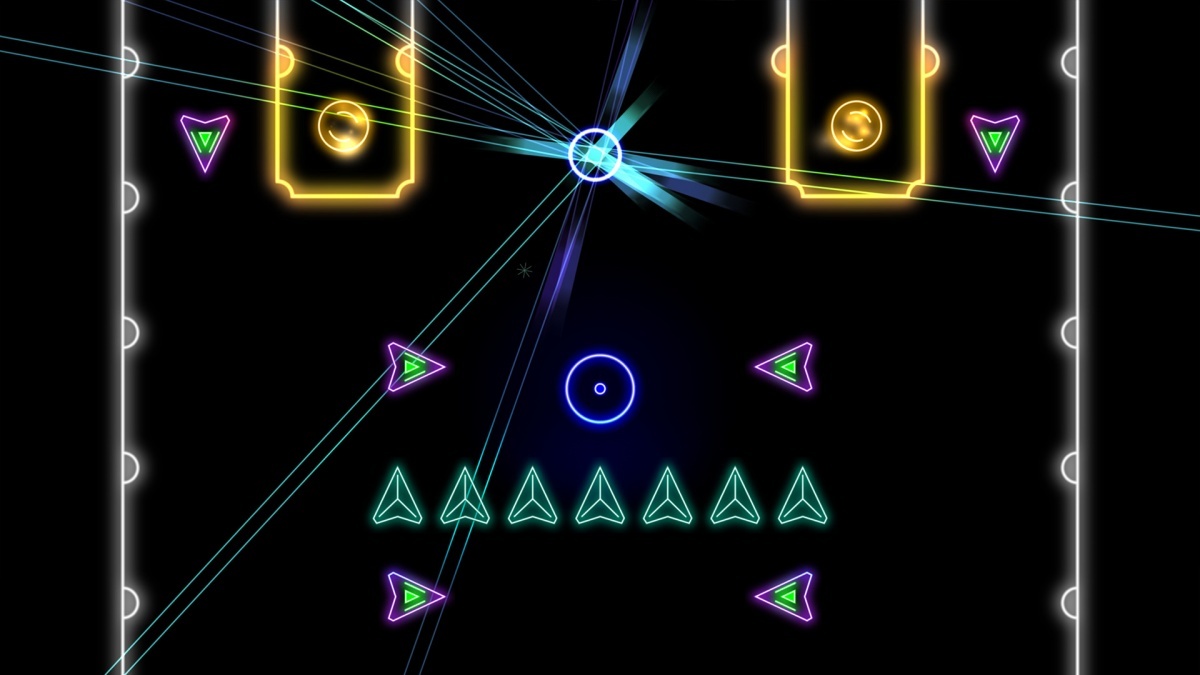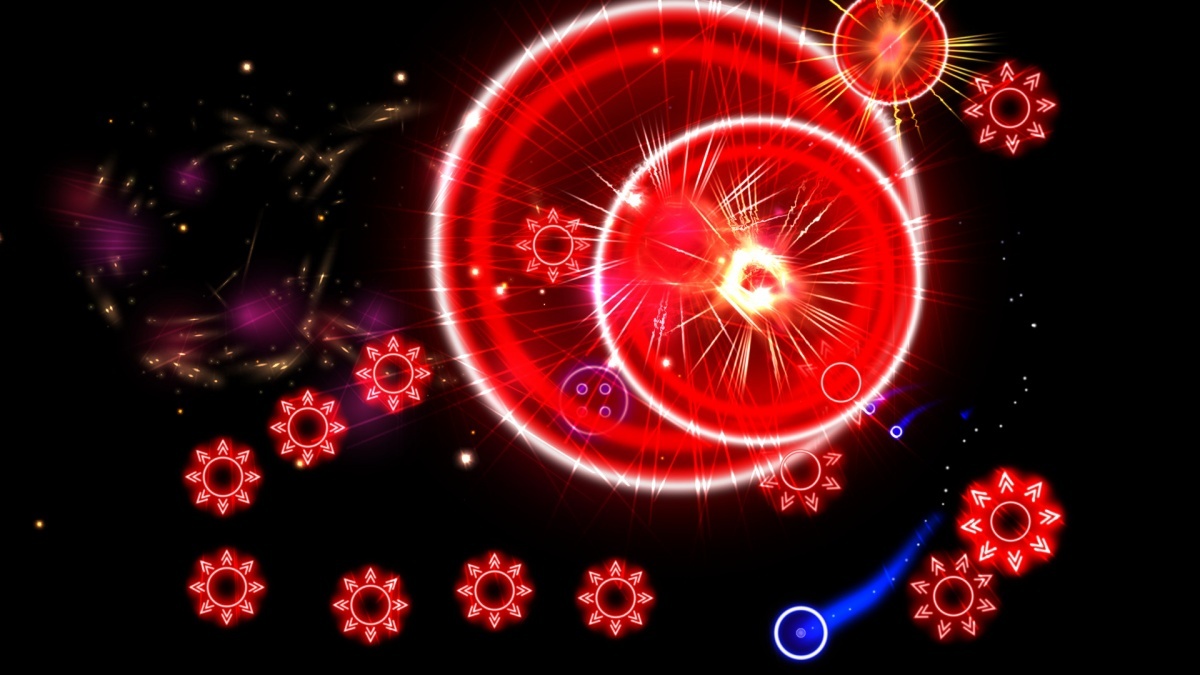Ellipsis (PC) Review
By Tomas Barry  06.08.2017
06.08.2017

Aspiring towards minimalism seems, in some ways, a solely economic idea, especially for the two-man team that makes up Salmi Games. Such a fundamental design influence creates its own set of pitfalls, which similar game experiences often fall victim to. Some of the most fatal issues are the use of repetition and recycling, and the problem of simply retaining the player's attention beyond an initial minor infatuation. Indeed, carefully navigating these issues often ends up being the key to the title's success. Ellipsis, while it technically couldn't be regarded as actual minimalism from either an artistic or a technical perspective, is a great example of creative methodology being thoughtfully explored and interpreted through a game experience. What is the premise here? Touch the circles to release and collect the dots inside, whilst navigating the increasingly complex and dynamic stages. Get to number four to pass the stage or go for the fifth to reach 100%.
That's about it for the premise, but it's surprising how absorbing this experience can be. Ellipsis is extremely easy on the eye, with cool and simple neon graphics, which really suit the experience. Things start slow, with no sense of challenge initially, as one phases in and out of the stages, enjoying sifting through the microcosm of shapes and colours. Then, the complexity of stages begins to step up, and before long, each visit feels truly distinct and challenging, particularly since the scale of levels certainly ramps up, along with the other aspects of difficulty.
The combination of these qualities leads to a very organic, progressive experience, perfect for an idle ten minutes, but equally capable of pulling players in for a longer-than-intended session. In this respect, it's a strange combination of being soothing to play, but also oddly absorbing and addictive. Not many games of this style manage to impose a compulsion for players to reach the end simply out of curiosity, but the stage design of Ellipsis is so great that many will feel compelled to surge through the one hundred levels available, even though there's not really any reward except the journey itself.

The pace is very peaceful, owed to the fact the player essentially has infinite lives; should you be hit by something, you're simply returned to the outer map, hopefully wiser about whatever caught you out. It's also necessary to make mistakes sometimes, since there's no text and the game is quite abstract, requiring a good deal of experimentation to interpret the ever-changing rules and mechanics in play.
The way Ellipsis mixes things up in this regard is remarkable, with some brilliant ingenuity on the Nintendo level of care and attention, which really is something to behold. Salmi Games certainly has maximised the creative muscle it has at its disposal with this simple premise, which is extremely impressive, and comes with a lot of scope, considering that there are 125 levels available. For the most intuitive experience, Ellipsis is best played with a mouse.

Cubed3 Rating
Great - Silver Award

It's impressive how the minimalist approach cultivates such energy with so little, and also how sustaining that approach is for Ellipsis in its design. While this game is not technically a piece of minimalist art, it is a very coherent marriage of the methodology behind it with the creative domain of video games. For this reason, it absolutely can be valued for its aesthetic qualities, just like a painting hung on the wall, and perhaps used for inspiration, or just to chill out after a long day. Whatever is abstract is also open to many different interpretations, so different gamers may respond differently to its creative ethos, but overall there's no doubt that Ellipsis should be recognised for its accessibility, polish and purpose. This is a simple game with a thoughtful soul. Much work has gone into it, and for those who appreciate great game design, it is certainly one to check out. Fingers crossed for a Nintendo Switch edition one day, as well.

![]() 8/10
8/10
![]() 0
(0 Votes)
0
(0 Votes)
 Out now
Out now  Out now
Out now  Out now
Out now  Out now
Out now Comments
Comments are currently disabled

 Sign In
Sign In Game Details
Game Details Subscribe to this topic
Subscribe to this topic Features
Features







 Top
Top

